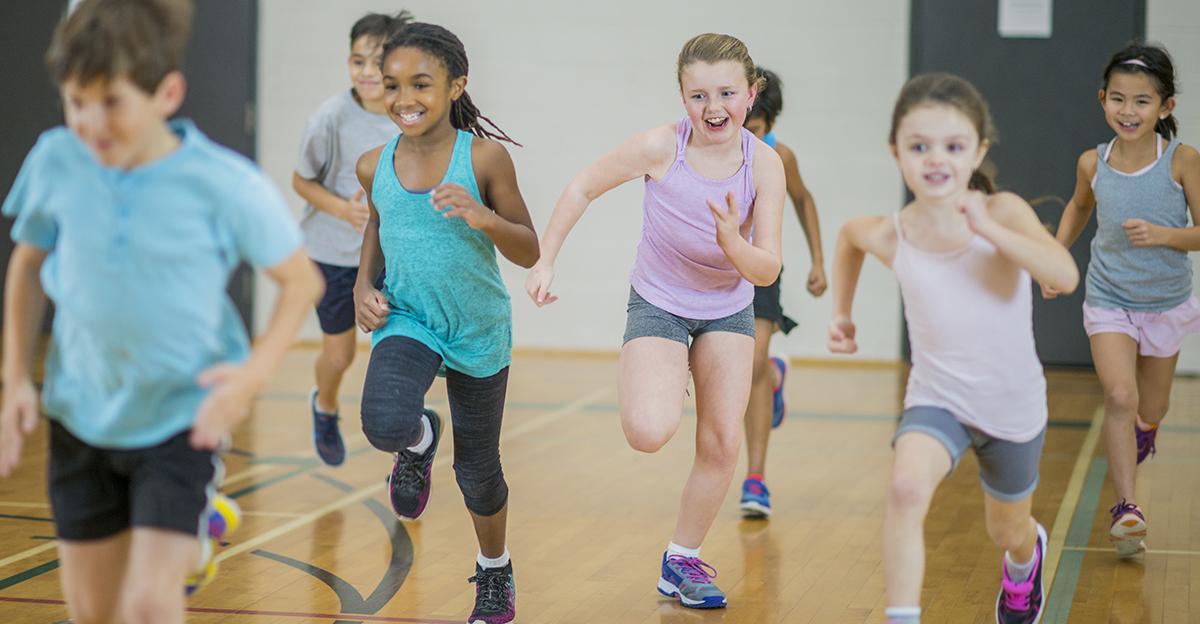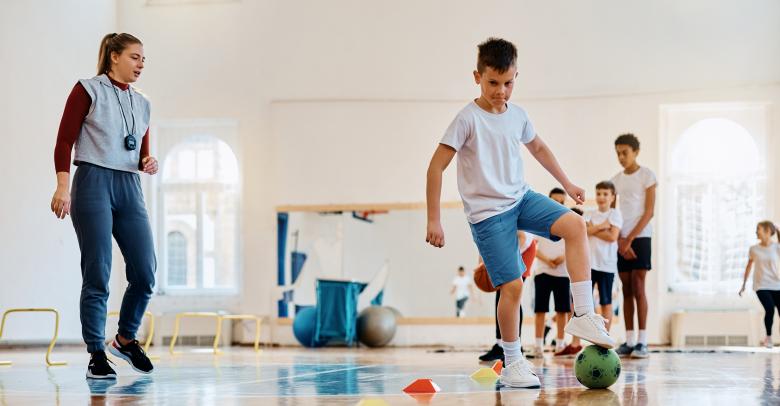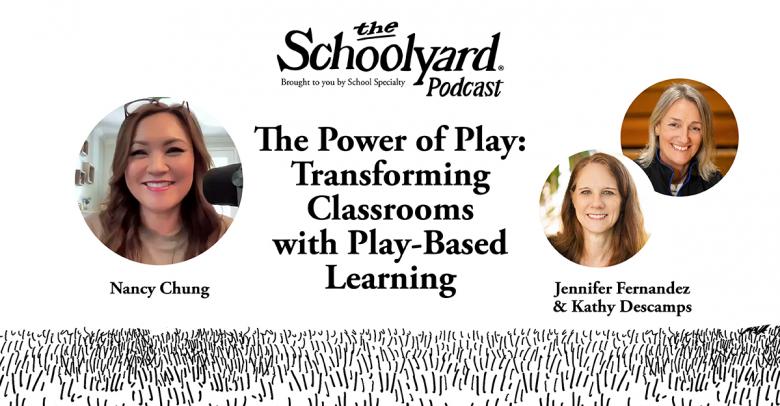Have you ever faced the challenge of getting your students consistently motivated, engaged, and supporting one another? Can you imagine an energized PE class where students show up early every day, give 100% effort, demonstrate leadership and teamwork, genuinely cheer the efforts of their classmates… and learn?
Sound too good to be true? Well, it’s not! Read on to learn more about proven strategies to make this your PE reality.
Authenticating Strategies
The simple, research-verified, and teacher-tested strategies outlined below promote a sense of belonging (affiliation), teamwork, and personal growth. They establish the critical and often misunderstood cooperation-competition link and focus on fair play and character development.
These strategies are designed to enhance students’ participation and ownership in the learning-teaching process. Each is impactful on its own, but when used collectively, they create a genuine, fun, supportive PE environment.
Long Term Grouping
Form equitable learning teams early in the unit and keep students on the same team for the entire unit.
- Benefit: Creates a context where teams have time to gel and fosters loyalty, teamwork, and personal growth.
Fair Play/Character Matters
Use a fair play contract focusing on character traits to deliberately highlight expectations for your classroom.
- Benefit: Adhering to fair play principles creates an environment that is supportive and encourages students to be responsible. Fair play extends beyond the PE classroom to all facets of life. Training students for a lifetime of cooperating and competing fairly is a worthy goal must be vigorously pursued in PE.
Team Points System
Create a system where teams can earn and accumulate points across the unit for what you believe is important (i.e., fair play, on-task, exemplary actions, etc.). Point totals may be used to crown a unit champion.
- Benefit: This system motivates because it accentuates the cooperation-competition link. Students are more task-focused and goal-oriented and teachers experience more efficient classrooms with fewer behavior problems.
Student Roles
Develop roles and associated responsibilities to ensure students learn about all aspects of activity, including player/participant, official, scorekeeper, etc.
- Benefit: Students learn from and enjoy performing non-player roles. Students assume more ownership and teachers are able to accomplish more when students assist. If space and/or equipment are limited, the use of non-player roles provides a way for more students to be meaningfully involved and simultaneously reduces the problems associated with students who would otherwise be idle.
Season with a Culminating Event
Title the unit a “season” and segment it into pre-, in- and post-season phases, with a culminating event (think Super Bowl, World Cup, Dance Olympics) to end the unit.
- Benefit: The event represents a meaningful destination and a venue for the application of the unit content in an authentic or “real” context. It inspires students to work cooperatively toward successful participation, promotes a spirit of unity within teams, and fosters a sense of healthy competition between teams, especially when paired with the fair play and team points systems.
Next Steps
Make PE real for your students by:
- Selecting two or more of the authenticating strategies from above to implement.
- Identifying one class in which to implement the strategies you selected.
- Reflecting on the implementation and challenging yourself to add strategies and classes as you and your students become increasingly comfortable with real, meaningful, and fun PE!
What other strategies do you use that serve to make PE meaningful for your students? We would love to hear from you in the comment section below!

Dr. Scott Townsend
Dr. J. Scott Townsend holds a Doctorate in Physical Education Teacher Education with a concentration in Curriculum and Supervision. He has worked extensively with curriculum and instruction models, more specifically focused on sport education. Read more posts by Dr. Scott Townsend –>

Dr. Derek Mohr
Dr. Derek Mohr, Professor in Health and Physical Edcuation at Appalachian State University, holds a Doctorate in Physical Education Teacher Education with a cognate in exercise physiology from West Virginia University. His focus area is in sport, activity, and fitness pedagogy. Read more posts by Dr. Derek Mohr –>






Leave a Reply